Unfortunately, with the new GDPR, we experienced some trouble with our Blog. That is why this post is published a little later than anticipated.
There you go.
With our new strategic orientation and the emergence of the DBpedia Databus, we wanted to meet some DBpedia enthusiasts of the German DBpedia Community.
The recently hosted 6th LSWT (Leipzig Semantic Web Day) on June 18th, was the perfect platform for DBpedia to meet with researchers, industry and other organizations to discuss current and future developments of the semantic web.
Under the motto “Linked Enterprises Data Services”, experts in academia and industry talked about the interlinking of open and commercial data of various domains such as e-commerce, e-government, and digital humanities.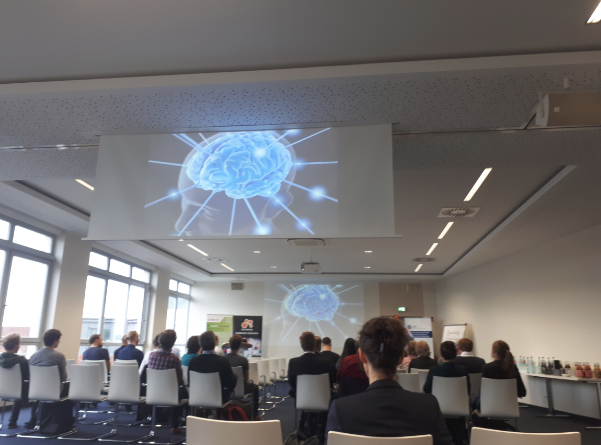
Sören Auer, DBpedia endorser and board member as well as director of TIB, the German National Library of Science and Technology, opened the event with an exciting keynote. Recapping the evolution of the semantic and giving a glimpse into the future of integrating more cognitive processes into the study of data, he highlighted the importanc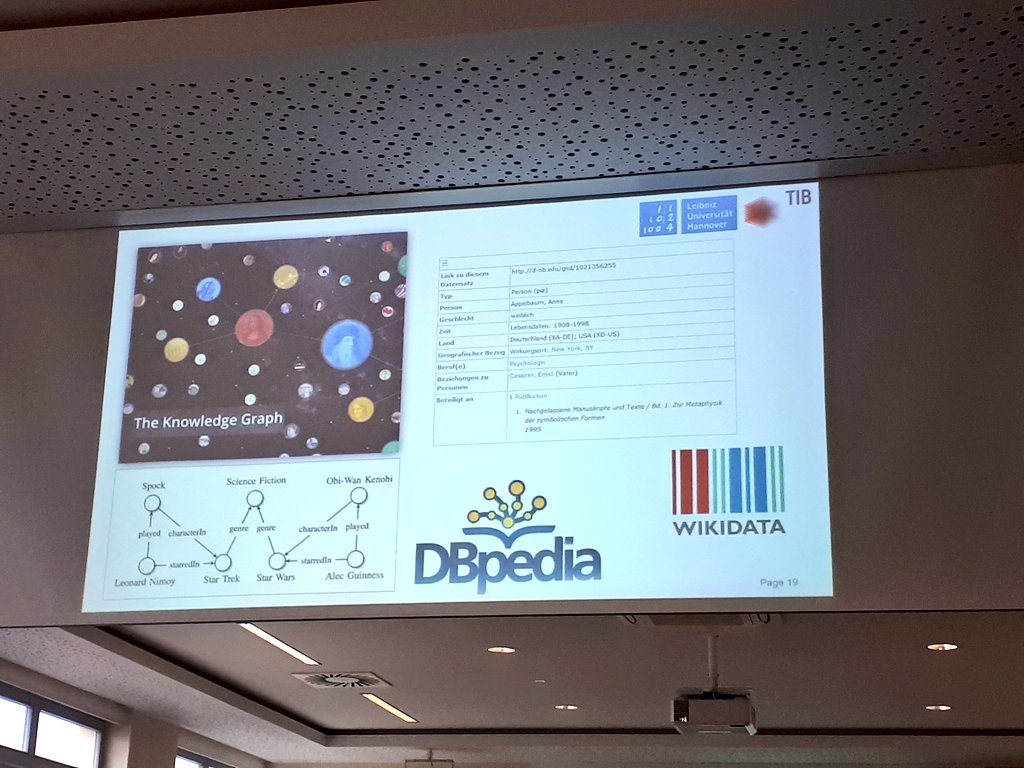 e of AI, deep learning, and machine learning. They are as well as cognitive data, no longer in their early stages but advanced to fully grown up sciences.
e of AI, deep learning, and machine learning. They are as well as cognitive data, no longer in their early stages but advanced to fully grown up sciences.
Shortly after, Sebastian Hellmann, director of the DBpedia Association, presented the new face of DBpedia as a global open knowledge network. DBpedia is not just the most successful open knowledge graph so far, but also has a deep inside knowledge about all connected open knowledge graphs (OKG) and how they are governed. 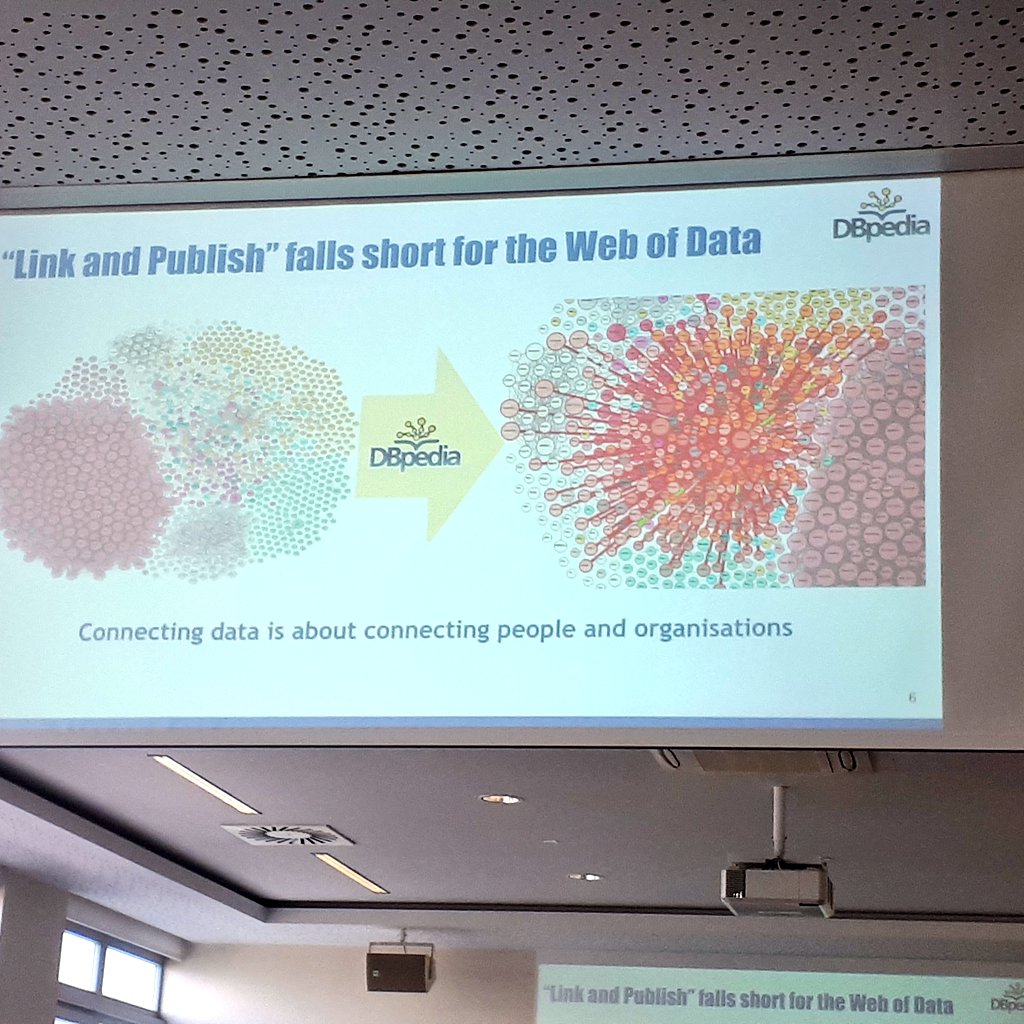
With our new credo connecting data is about linking people and organizations, the global DBpedia platform aims at sharing efforts of OKG governance, collaboration, and curation to maximize societal value and develop a linked data economy.
The DBpedia Databus functions as Metadata Subscription Repository, a platform that allows exchanging, curate and access data between multiple stakeholders. 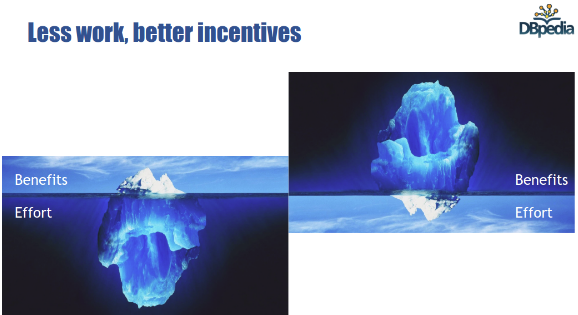 In order to maximize the potential of your data, data owners need a WebID to sign their Metadata with a private key in order to make use of the full Databus services. Instead of one huge monolithic release every 12 months the Databus enables easier contributions and hence partial releases (core, mapping, wikidata, text, reference extraction) at their own speed but in much shorter intervals (monthly). Uploading data on the databus means connecting and comparing your data to the network. We will offer storage services, free & freemium services as well as data-as-a-service. A first demo is available via http://downloads.dbpedia.org/databus
In order to maximize the potential of your data, data owners need a WebID to sign their Metadata with a private key in order to make use of the full Databus services. Instead of one huge monolithic release every 12 months the Databus enables easier contributions and hence partial releases (core, mapping, wikidata, text, reference extraction) at their own speed but in much shorter intervals (monthly). Uploading data on the databus means connecting and comparing your data to the network. We will offer storage services, free & freemium services as well as data-as-a-service. A first demo is available via http://downloads.dbpedia.org/databus
During the lunch break, LSWT participants had time to check out the poster presentations. 4 of the 18 posters used DBpedia as a source. One of them was Birdory, a memory game developed during the Coding Da Vinci hackathon, that started in April 2018. Moreover, other posters also used the DBpedia vocabulary.
Afternoon Session
In the afternoon, participants of LSWT2018 joined hands-on tutorials on SPARQL and WebID. During the SPARQL tutorial, ten participants learned about the different query types, graph patterns, filters, and functions as well as how to construct SPARQL queries step by step with the help of a funny Monty Python example.
Afterwards, DBpedia hosted a hands-on workshop on WebID, the password-free authentication method using semantics. The workshop aimed at enabling participants to set up a public/private key, a certificate, and a WebID. 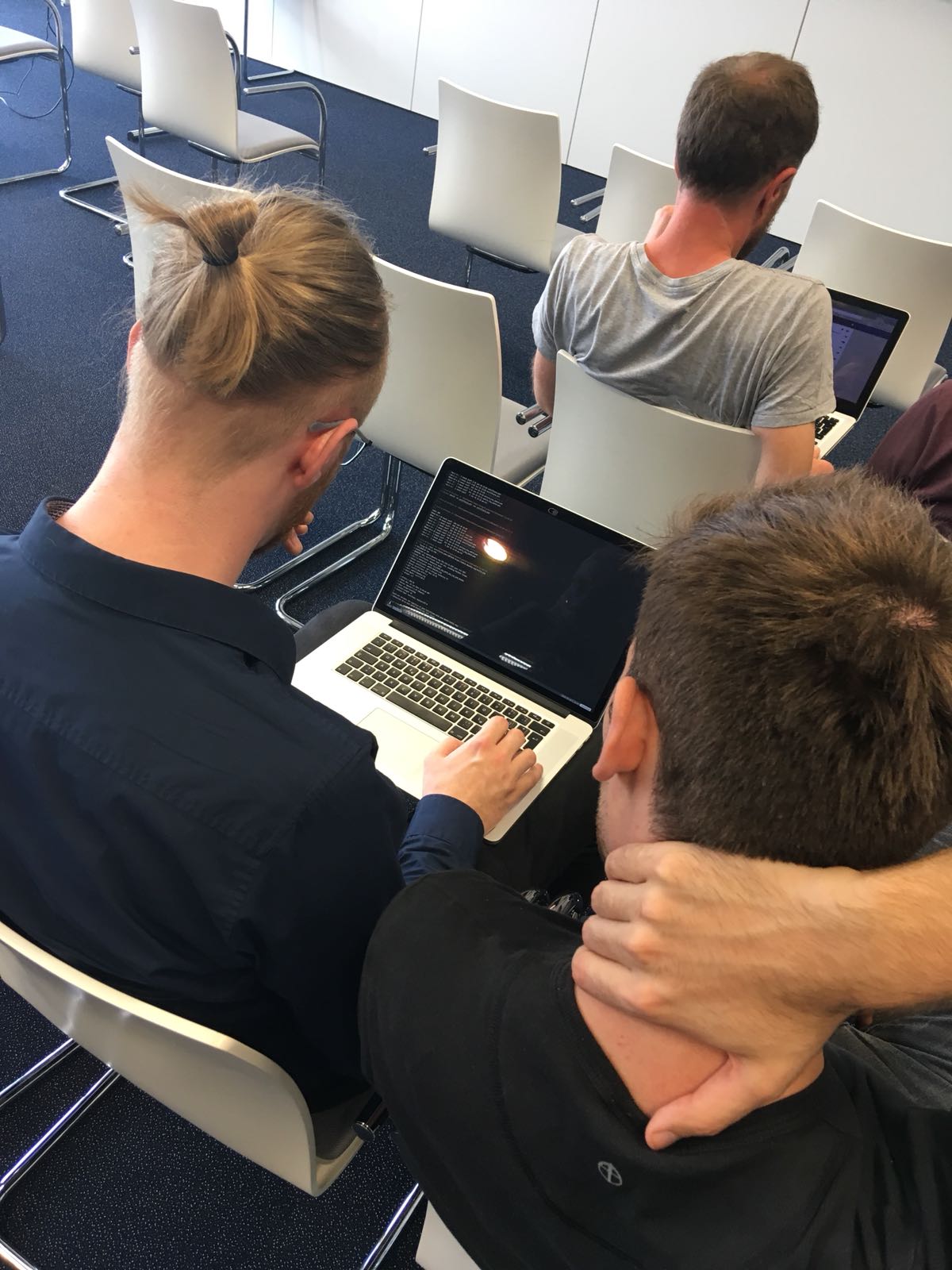 Everything they needed to bring was a laptop and an own webspace. Supervised by DBpedia’s executive director Dr. Sebastian Hellmann and developer Jan Forberg, people had to log-into a test web service at the end of the session, to see if everything worked out. All participants seemed well satisfied with the workshop – even if not everyone could finish it successfully they got a lot of individual help and many hints. For support purposes, DBpedia will stay close in touch with those participants.
Everything they needed to bring was a laptop and an own webspace. Supervised by DBpedia’s executive director Dr. Sebastian Hellmann and developer Jan Forberg, people had to log-into a test web service at the end of the session, to see if everything worked out. All participants seemed well satisfied with the workshop – even if not everyone could finish it successfully they got a lot of individual help and many hints. For support purposes, DBpedia will stay close in touch with those participants.
Thanks to Institut für Angewandte Informatik as well to the LEDS -project and eccenca for organizing LSWT2018 and keeping the local semantic web community thriving.
Upcoming Events:
We are currently looking forward to our next DBpedia meetup in Lyon, France on July 3rd and the DBpedia Day co-located with Semantics 2018 in Vienna. Contributions to both events are still welcome. Send your inquiry to dbpedia@infai.org.
Yours
DBpedia Association
- Did you consider this information as helpful?
- Yep!Not quite ...
